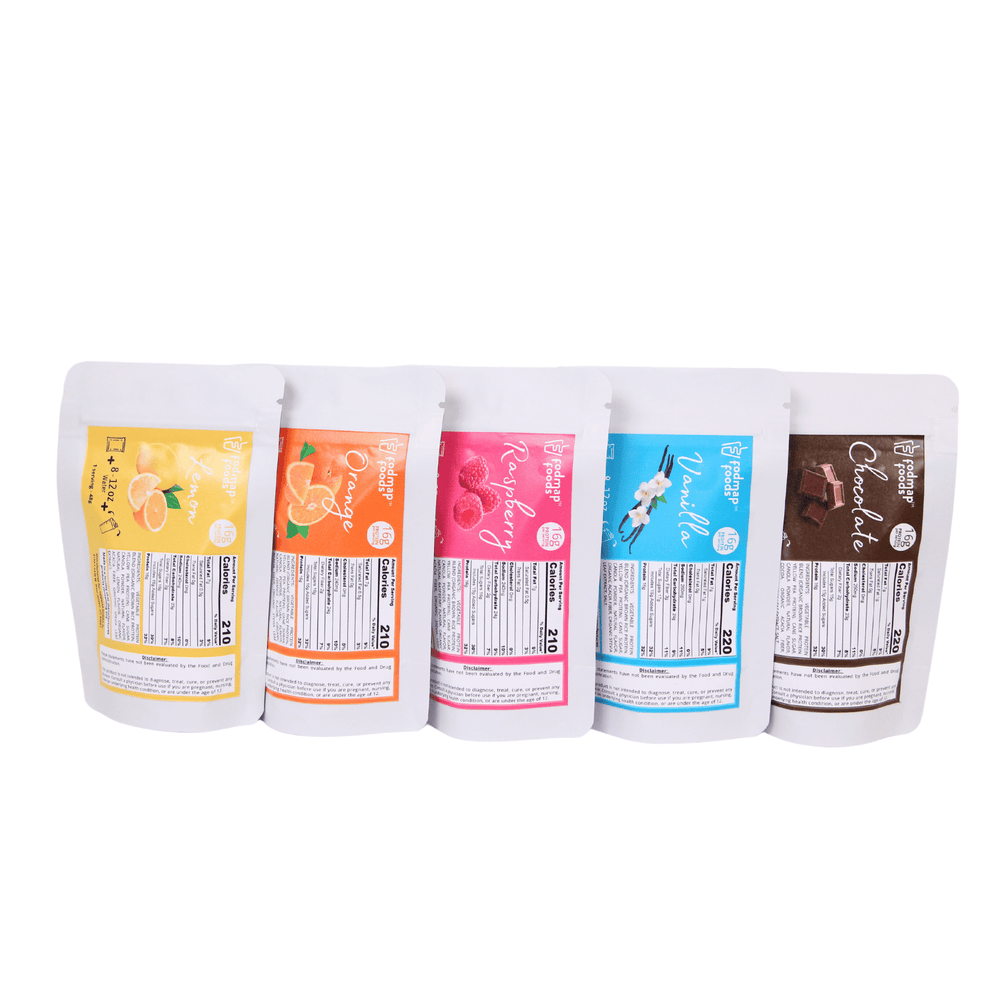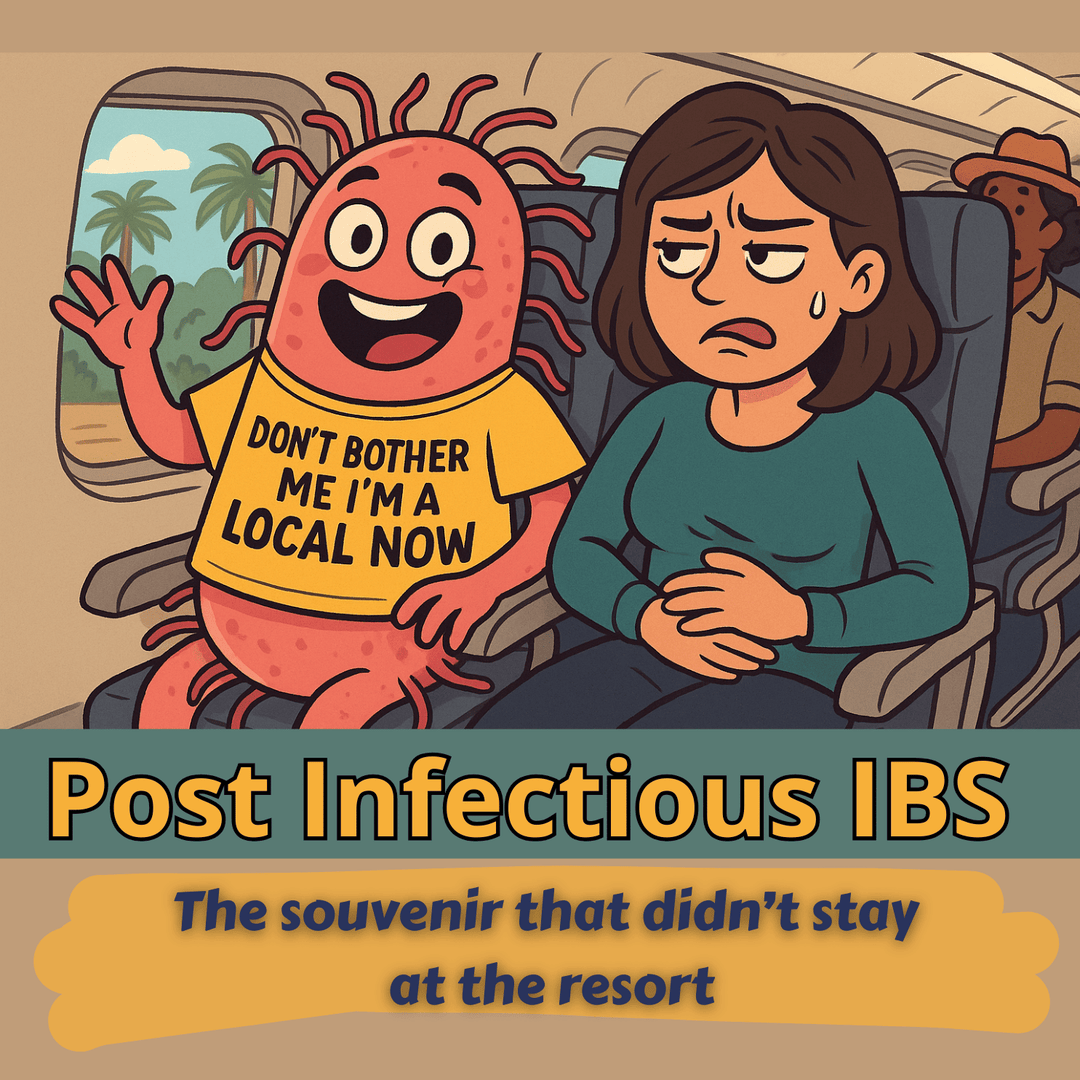How does IBS cause constipation?
Why does my IBS make me constipated?
Long story made short, constipation can occur due to various reasons such as methane-producing bacteria, slow intestinal movement, and dehydration. Now for a long story made long keep reading the rest of the article.A little more about IBS
What is IBS:
Irritable Bowel Syndrome (IBS) is a condition affecting the digestive system. It causes problems like belly pain and changes in bowel movements. Some symptoms of IBS include: stomach pain, bloating, cramping, diarrhea, and constipation. Doctors use something called the Rome IV criteria to figure out if someone has IBS. It's a checklist of symptoms that includes: abdominal pain, stool consistency changes, gas, cramping, and pain relief after pooping. IBS is a little tricky because it may look different in everyone. There are other digestive problems that might also cause abdominal pain. IBS should never cause symptoms like fevers, chills, or blood in your stool.Stool Changes
IBS causes your poop to change consistency. Normal poops are soft, formed, and have a peanut butter type consistency. Your poop may not be abnormal all the time. Sometimes you may have a normal stool and other times it may change. All the following are examples of possible stool changes with IBS.
- Diarrhea: The urge to got to the bathroom may be different as well. Some people go to the bathroom a lot, feel like they have to poop right away, and their poop is watery. This is diarrhea predominant or IBS-D.
- Constipation: Others don't go often, have trouble pooping, and when they do, it is a very hard stool. These describe the constipation version, or IBS-C.
- Mixed: Some people swing between diarrhea and constipation. This is known as mixed symptoms or IBS-M.
Constipation
There is not just one cause of constipation. There are many we know, but others we may not. To start, let’s talk about methane. Recent research has shown that methane may play an important role in controlling how your intestines work. Methane is a colorless gas that has a distinct smell. It is flammable and can be used as a fuel. It is the main component of natural gas, which we use for heating homes, cooking food, and generating electricity. The methane we use for our houses is found underground as is called natural gas, but there are above ground sources too. These sources of Methane are made by tiny organisms that turn food into methane gas. These organisms are bacteria and can live in the digestive tract of animals. People can have these methane producing bacteria (methanogens) in their intestines. They make methane gas (farts) when they break down the food they eat. Methanogens are naturally found in people but usually in small quantities. When you get too many of these methanogens in your digestive tract you get too much methane gas. Studies have shown that people with high levels of methane in their digestive tract have constipation.
How does Methane control your bowel movements?
One of the main functions of the colon is to take liquid food waste and remove water from it. As it does this, the remaining waste becomes a solid and is called a stool or poop. Now imagine your gut is like a busy highway and the cars are like food moving down this highway. Methane acts like traffic construction. It slows everything down and makes it hard for the food to keep moving. The methane does this by signaling the large intestine (colon) to slow the contractions that move the poop on its way out. As this food slows down, the colon removes more and more water from the poop. As it removes water, your poop gets more solid. If you remove too much water, instead of poop being soft like peanut butter, the poop becomes hard and gets cracks on the surface. The poops can become so dry and solid that instead of being a log they become small, like stones or pellets. The harder your poop is, the more constipated you become. This is why people with too much methane may have trouble pooping. It's like their gut is moving in slow motion! This can make them feel bloated, uncomfortable, and like they need to poop, but nothing comes out. Because these methanogens can be fed, sometimes you may have more methane than other times, causing changes in your bowels. Knowing about methane helps doctors understand why some people have these problems.
How to diagnose methane problems
Diagnosing methane troubles in your gut may take several visits to the doctor. This is because doctors should first ask you questions about your stomach pain and issues. They do this to rule out other possible gut problems like Crohn’s, Ulcerative Colitis, or Celiac. Typically, a diagnosis of IBS is reached after ruling out other potential issues. Once this is done, your provider can order a breath test, where you blow air into a special bag with your mouth, allowing doctors to see the level of methane in your breath.Does my food affect things?
Yes. Certain foods may affect your digestion. Certain foods feed different bacteria. Some food you eat will help the methanogens make more methane in your gut. Cutting out these foods may help with constipation and diarrhea. Foods, like fruits and veggies, are healthy and have carbohydrates or sugar and fiber in them. Typically, fiber helps to keep stools soft and smooth, which helps with digestion. This is not true for all people. Fiber can feed to make methane. This may cause bloating and constipation. Some healthy food can cause you to have worse IBS symptoms. Trying to figure this out can be challenging, but the IBS elimination diet helps teach you this. Another way to learn which foods are a problem is getting help from an IBS dietitian. They may be the most valuable resource you have in learning about food and your stomach issues.How do you get rid of the methane
What if I have an overgrowth of methanogens, what can I do? Because this is still a new field of medicine, we do not have all the answers. It may not be as simple as taking a pill and magically being better from your IBS-C. Doctors have several treatment options to explore for addressing this issue. One way is to use antibiotics that get rid of methanogen bacteria responsible for making all of the methane. These medicines change the type of bacteria in your intestines, which can help your gut start moving again.Food changes
Altering your diet won't eliminate the bacteria, but it might help control their population. With reduced numbers of bacteria, methane levels decrease, potentially alleviating symptoms. A food journal may help you learn to avoid these foods and help with your symptoms. One of the reasons I made our shakes was because we wanted something safe to eat that doesn’t cause IBS symptoms. Our shakes are “gut friendly” and cut down on gas and cramping.Statins
There is exciting new research showing medication that treats cholesterol may stop this methane production by bacteria. This group of medications, called “statins”, may revolutionize treatment of IBS-c. These medications are commonly used to treat high cholesterol. We also use them after a person has had a stroke or heart attack to prevent them from having another one. Discovering that these medications may decrease the amount of methane in the intestines, was unexpected.Medication regulating speed of the colon
Another option may be to make the colon speed up. These medications affect how fast the colon squeezes to move poop out. This increase in movement in the colon prevents the water from being absorbed and the stool stays softer. This type of medication is not a cure but can offer relief for bloating and constipation.Natural options
There are many treatment options available to help with IBS. It is beneficial to research different treatment options and use the ones best for us. “Natural” options are very appealing because they let you be more in control of how to treat yourself. These are great things to try but are not a replacement for dietitians or doctors.








Leave a comment